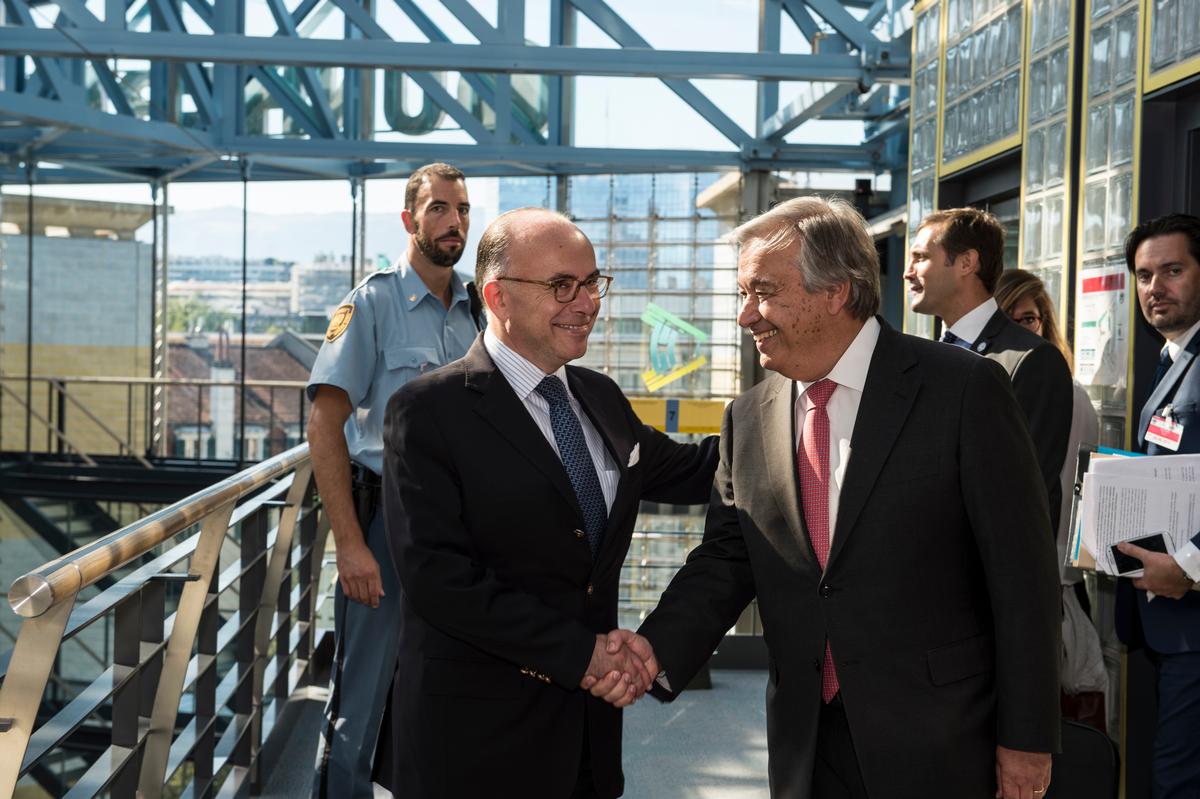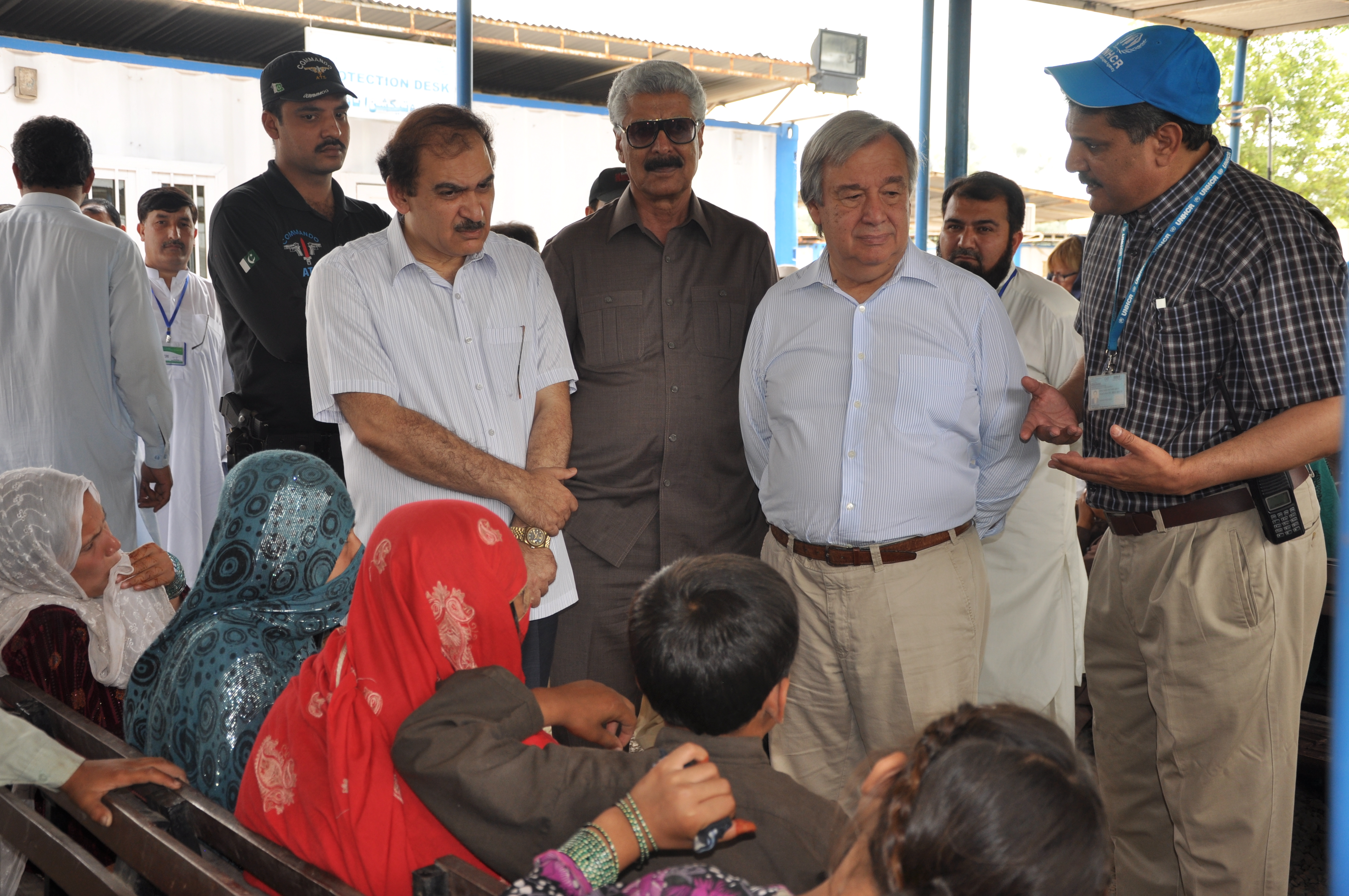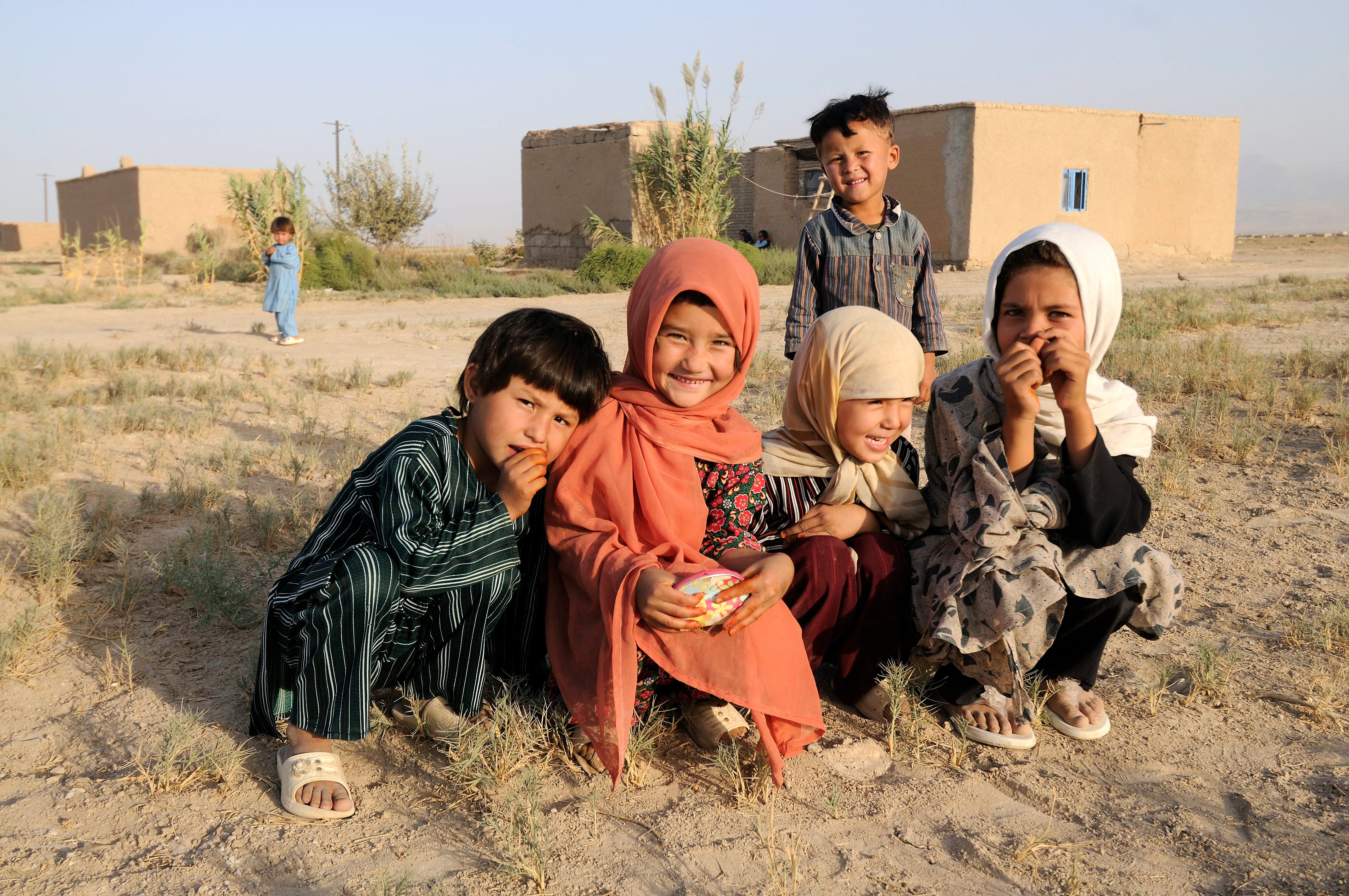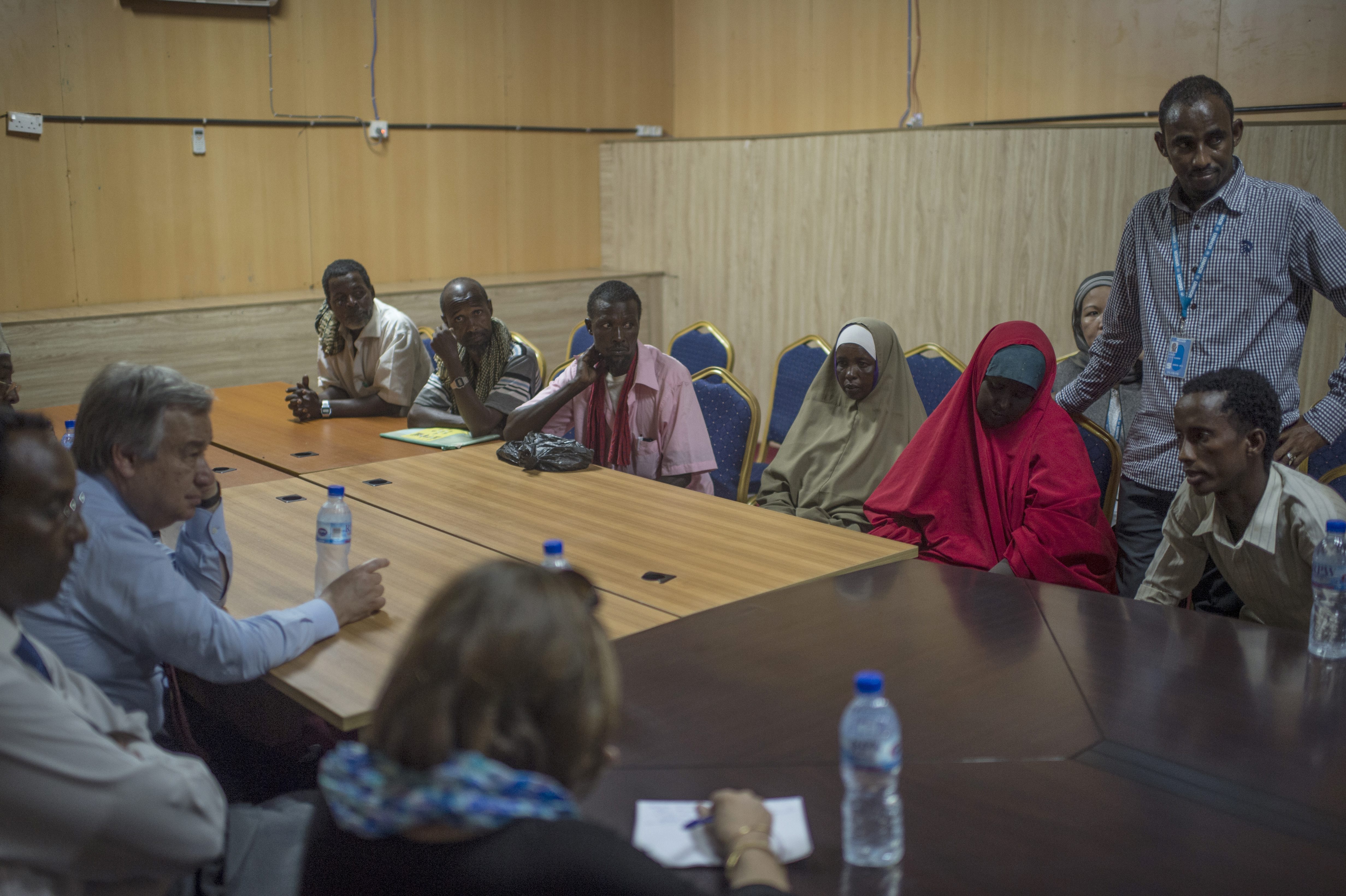Guterres to meet Lula da Silva on first visit to Latin America
Guterres to meet Lula da Silva on first visit to Latin America
GENEVA, November 3 (UNHCR) - The UN High Commissioner for Refugees, António Guterres, is going to Brazil next week for a two-day visit, his first to Latin America since he took office in June. He is scheduled to meet with President Luís Inácio Lula da Silva on Monday and will be seeking support for the Mexico Plan of Action, a regional initiative to help refugees and internally displaced people.
Brazil has been closely involved in UNHCR's work since the agency was created in 1950, and a decade later became one of the first countries in Latin America to sign the 1951 Refugee Convention. It was also the first country in the region to pass a national refugee law in 1997. Last year, it played an important role in the adoption by 20 Latin American nations of the Mexico Plan of Action.
"Brazil plays a leading role in the world today, not only economically but also politically, as can be seen today in Haiti for example, where Brazil is heading the UN Peacekeeping troops," High Commissioner Guterres said before his departure. "I am looking forward to a close partnership, so Brazil can help us address the root causes of displacement and exile, not only in Latin America but also in a wider context."
The biggest challenge UNHCR faces in Latin America today arises from the 40-year-old armed conflict in Colombia. At least two million people have been forcibly displaced within the country's borders, while hundreds of thousands of Colombians have fled to other countries. This unrelenting flow of people is putting pressure on neighbouring countries - especially Ecuador, Costa Rica, Venezuela and Panama - and threatens to endanger regional stability.
In order to relieve some of the pressure, the Mexico Plan of Action has set up a regional resettlement programme to encourage other Latin American states to receive some of the refugees currently living in one or other of Colombia's immediate neighbours. The initiative was spearheaded by Brazil, which has been running its own resettlement programme for several years.
Carla and Javier are two of the Colombian refugees to have benefited from Brazil's generosity. The couple arrived in November 2004 with their two young sons after a long and traumatic journey that took them first from one city to the next in Colombia, then to Ecuador and finally to the São Paulo neighbourhood where they live today.
Javier, a professional in marketing, began to receive death threats from one of Colombia's irregular armed groups in 2003. Fearing for his children and his wife's safety, he immediately moved his family to another city. But his presence there became known, and the threats continued. Soon afterwards, he fled to Ecuador. Even there, he did not feel safe. He says his persecutors followed him across the border and that he still feared for his life.
"We became absolutely desperate," he says. "We had lost everything and we had no idea where else to go. Then UNHCR told us they would help us to find another country. Brazil was the quickest to say yes."
At first, the family did not know what to expect - Brazil was unknown territory to them, further away from home than they had ever been. Still, there was no choice. All they wanted was a safe place to live and bring up their children. In November of last year, they arrived in São Paulo.
"I really did not expect the welcome that we got," says Carla. "From the very start, people who did not know us at all were offering us eggs and milk, sometimes fish and chicken. They even gave us a nice new blanket for the winter."
In the past four years, some 200 refugees, most of them Colombians, have found a new home in Brazil. In total, there are some 3,000 registered refugees in the country, about half of whom are from outside the region.
During his visit, the UN High Commissioner for Refugees will also meet with the Minister of Foreign Affairs and the Minister of Justice, as well as with church representatives and officials of GRULAC, the Group of Latin American and Caribbean countries.






